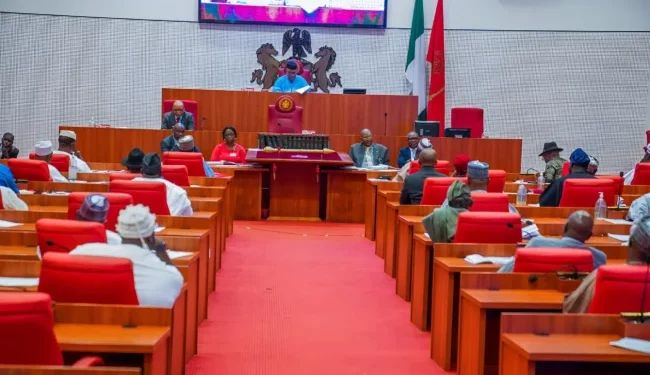The Nigerian Senate has passed for second reading the Factoring Regulation Bill, 2024, a proposed law designed to help small and medium-sized enterprises (SMEs) access quicker financing by converting unpaid invoices into immediate cash.
Sponsored by Senator Asuquo Ekpenyong, the Bill seeks to tackle one of the biggest challenges facing micro, small, and medium enterprises (MSMEs) delayed payments for goods and services already delivered.
Ekpenyong explained that many small businesses in Nigeria wait up to 90 days or more before receiving payment from clients, a situation that disrupts their cash flow and limits their ability to pay staff or restock.
“This cycle of weak cash flow not only traps small businesses but also slows down our economy’s overall growth,” he said.
The proposed legislation introduces factoring a financial arrangement where verified invoices are sold to licensed finance companies or banks at a small discount in exchange for instant payment.
“Unlike traditional loans that depend on collateral, factoring is based on the buyer’s creditworthiness and the validity of the invoice. This allows businesses to access financing on the strength of their sales, not their fixed assets,” Ekpenyong added.
The Bill establishes a clear regulatory framework under the Securities and Exchange Commission (SEC) to ensure only licensed entities engage in factoring. It also mandates transparency in fees, protects invoice transfers from disputes, and supports digital innovations like e-invoicing and receivables registries to reduce fraud.
Ekpenyong noted that similar frameworks in Mexico, India, Chile, Brazil, and South Africa have unlocked billions of dollars in working capital for small businesses. He expressed optimism that Nigeria could attract over $1 billion annually through factoring to support local production, create jobs, and strengthen investor confidence.
“This is not another short-term credit scheme. It is a structural reform that converts invoices MSMEs already hold into usable capital,” he said.
The Bill, which was first read on June 11, 2024, was approved for second reading by a voice vote and referred to the Senate Committee on Banking, Insurance and Financial Institutions for further legislative work.










